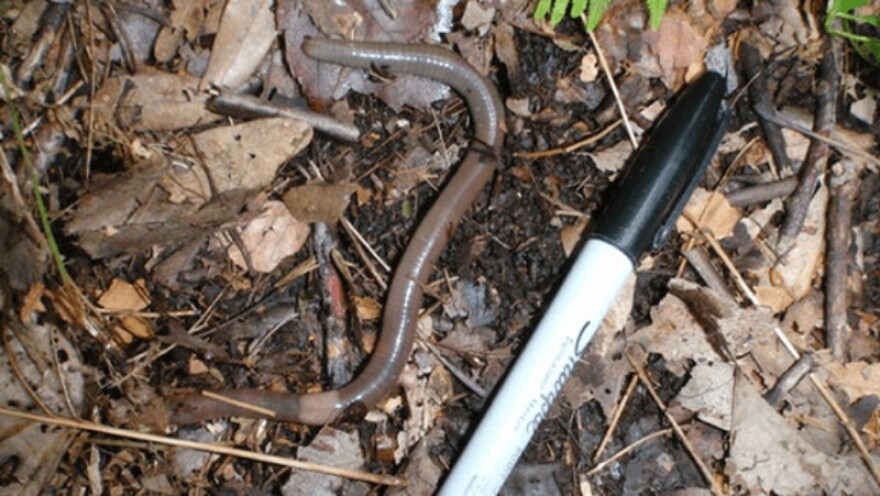Alabama jumpers, Jersey wrigglers, disco worms, - all funny names for a serious invasive species now being found across Michigan’s lower peninsula: the jumping worm.
“I mean they don't really jump like we think of jumping insects like grasshoppers but when they're disturbed, they will thrash around and have these kind of snake-like movements.”
Nicolle Ritchie is a Field Crops Agronomist Educator for Michigan State University Extension.
She says the worms quickly eat through organic matter, retaining all nutrients, returning nothing of value to the soil.
Unlike native worms, their droppings or castings don’t hold water as a benefit to the soil either.
All of which could affect Michigan farmers.
“We would see impacts because we know for sure that they can deteriorate soil, especially those top layers of soil. We know that even sometimes they've been known to feed on roots so again that could harm a crop.”
At greatest risk are West Michigan's specialty crops like potatoes, and perennial crops like grapes, apples and blueberries.
Ritchie says right now most reports about the jumping worms are coming from home gardeners, not farmers.
“In production agriculture there are other bigger pests that often tend to take precedence, and these could very easily slide under the radar.”
Ritchie is asking anyone who discovers jumping worms to kill them and report it to the MSU Extension office.
“It is not hopeless. It is scary when invasive species spread and it is time consuming to get rid of these and it's not a fun process, but there are resources and support out there so we will get through this and hopefully not experience too bad of impacts from them.”
For a weekly dose of news right to your inbox, sign up for the WGVU newsletter.





